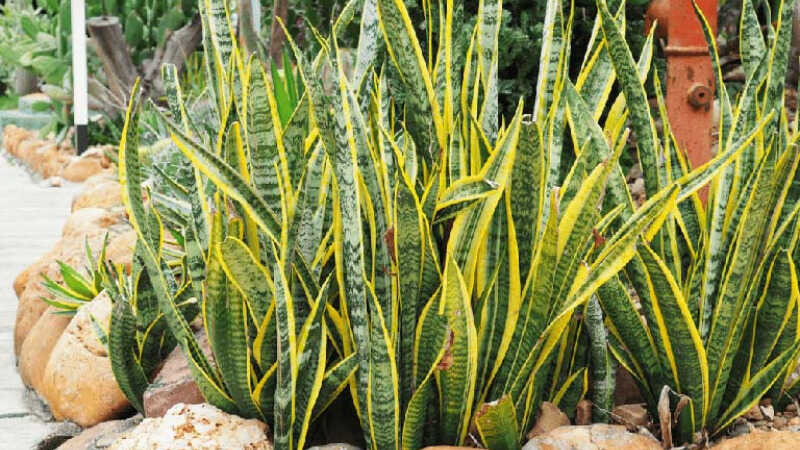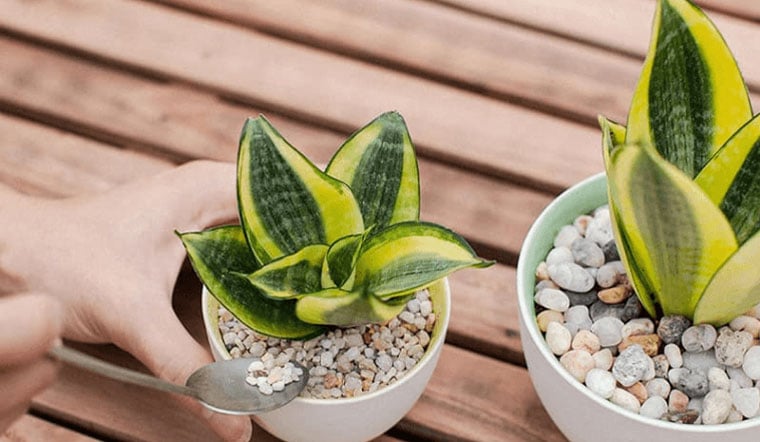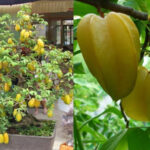The Benefits of the Snake Plant
The Snake Plant is a popular choice for many homeowners due to its striking appearance. Its long, slender leaves feature a beautiful combination of green, yellow, and white colors, making it a stunning addition to any indoor space.
One of the most notable advantages of the Snake Plant is its air-purifying capability. Research has shown that this plant effectively absorbs 107 types of toxic gases, including nitrogen oxide and formaldehyde, improving the overall air quality of your home or office. Additionally, what sets the Snake Plant apart from other houseplants is its ability to absorb CO2 and release O2 at night, promoting better sleep quality.
In Feng Shui, the Snake Plant is believed to possess the power to ward off evil spirits and bring good fortune and prosperity to its owner. Many people also associate the plant with enhanced luck and wealth, especially when it aligns with one’s birth element.

The Snake Plant Brings Good Fortune and Wealth to its Owner.
Which Birth Element is the Snake Plant Most Suitable For?
The Snake Plant’s green and yellow leaves perfectly complement the colors associated with the Metal and Earth elements. Therefore, individuals belonging to these elements will greatly benefit from having a Snake Plant in their living or working space. The plant will not only ward off bad luck and attract good fortune but also contribute to the overall success and prosperity of its owner.
For those born under the Metal element, it is recommended to plant the Snake Plant in elongated, square, or rectangular pots, avoiding pots with sharp corners or ornate curves. The Metal element includes individuals born in the following years: Canh Thìn, Tân Tỵ, Quý Dậu, Nhâm Thân, Tân Hợi, Quý Mão, Giáp Tý, Ất Sửu, Canh Tuất, Nhâm Dần, Ất Mùi, and Giáp Ngọ. The Snake Plant is considered an extremely auspicious choice for these individuals.
As for those belonging to the Earth element, square or rectangular pots are also ideal, as well as pots with sharp corners or pyramid shapes. Avoid elongated pots for this element. Individuals born in the following years are associated with the Earth element: Mậu Dần, Kỷ Mão, Bính Tuất, Bính Thìn, Đinh Tỵ, Đinh Hợi, Canh Tý, Tân Sửu, Mậu Thân, Kỷ Dậu, Canh Ngọ, and Tân Mùi.
Even if your birth element is different, you can still enjoy the Snake Plant as a decorative and auspicious addition to your home. This plant carries a wealth of positive Feng Shui associations.
The Best Placement of the Snake Plant to Attract Wealth and Prosperity

The Snake Plant Can Be Placed in Various Areas of the Home, Including the Entrance, Balcony, Living Room, and Bedroom.
The Snake Plant can be positioned in several areas of the home, such as the entrance, balcony, living room, or bedroom. To maximize its wealth-attracting potential, it is advisable to place the plant in the East or Southeast direction. However, there are a few locations that you should avoid when placing your Snake Plant:
– Bathroom
The bathroom is typically a humid, poorly lit, and dusty environment, which can negatively impact the Snake Plant’s growth. This plant does not tolerate high humidity well, and placing it in the bathroom may lead to root rot and mold issues.
– Entrance
In Feng Shui, the Snake Plant is considered a lucky charm. Placing it near the entrance can block negative energy and attract good fortune. However, it is crucial to ensure that the plant does not obstruct the pathway. While you can place it on either side of the entrance, avoid positioning it directly across from the door, as this may hinder the flow of wealth into your home.
“The Ancestral Home: Preserving Prosperity by Emptiness in Three Key Spaces”
The ancient wisdom advises keeping these three places clean: your home, your heart, and your mind. By tending to these spaces, you invite prosperity and good fortune into your life. A tidy home attracts positive energy, while a pure heart and a clear mind create a path for blessings and abundance to find you. Remember, true wealth goes beyond material possessions; it is a state of being where contentment and peace reign.
“The Carambola Tree: A Wealth-Attracting Symbol”
In the world of Feng Shui, attracting wealth and prosperity is an art. The humble star apple tree takes center stage as a powerful symbol of abundance. Positioning this tree in key areas of your home becomes a strategic move to welcome a flood of good fortune. Discover the secret to harnessing the power of nature’s bounty and turning your home into a magnet for prosperity.



































